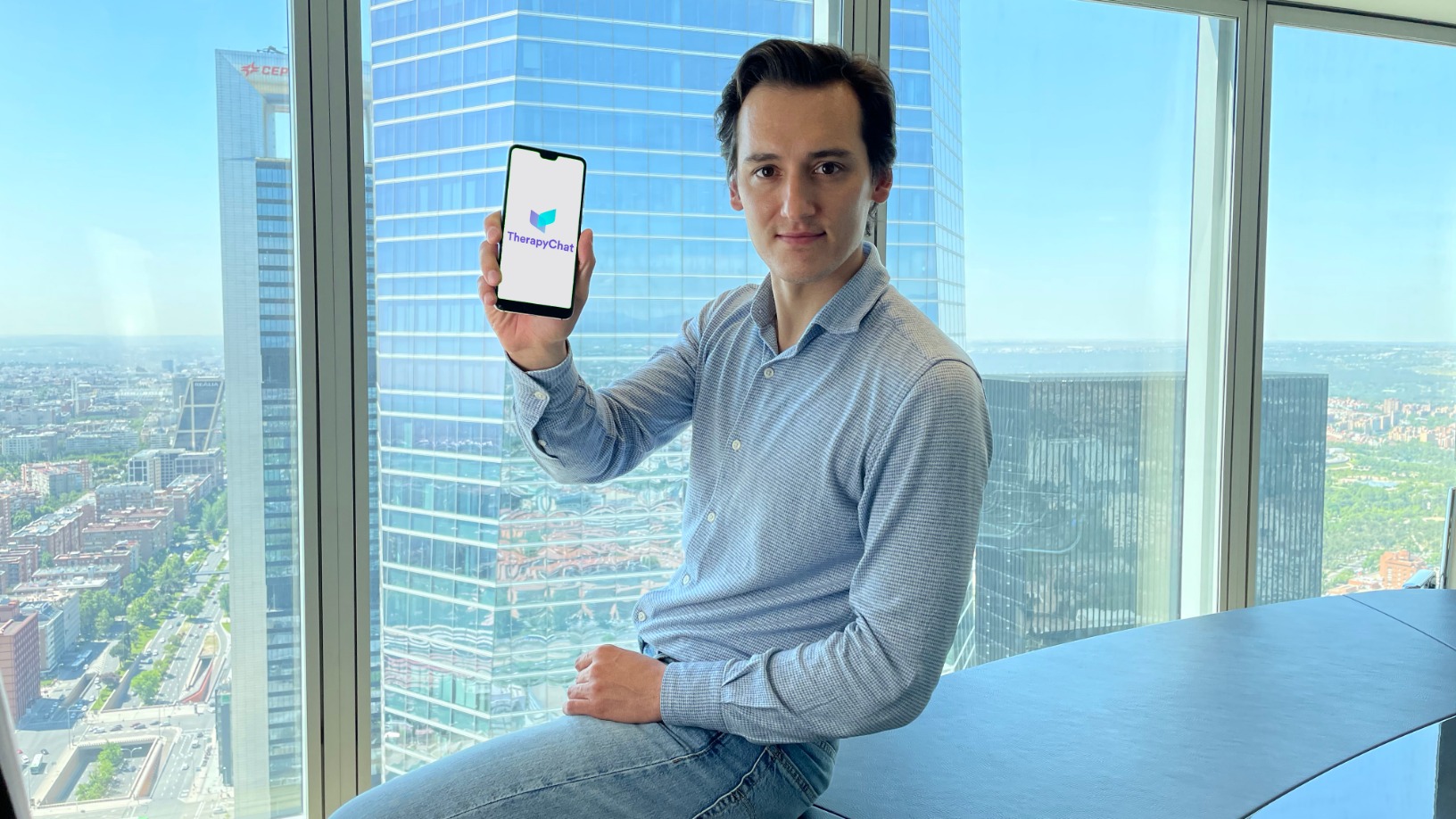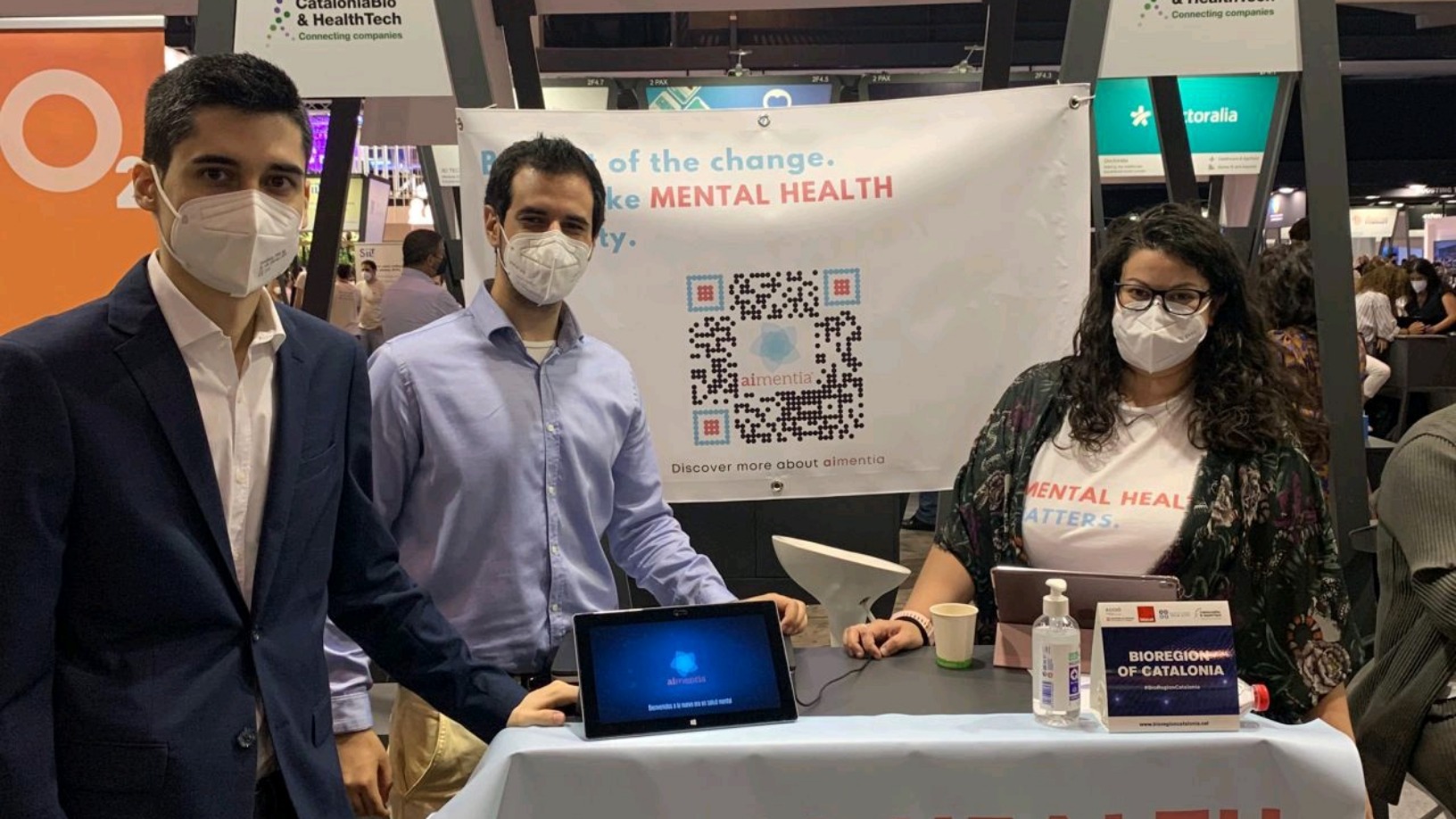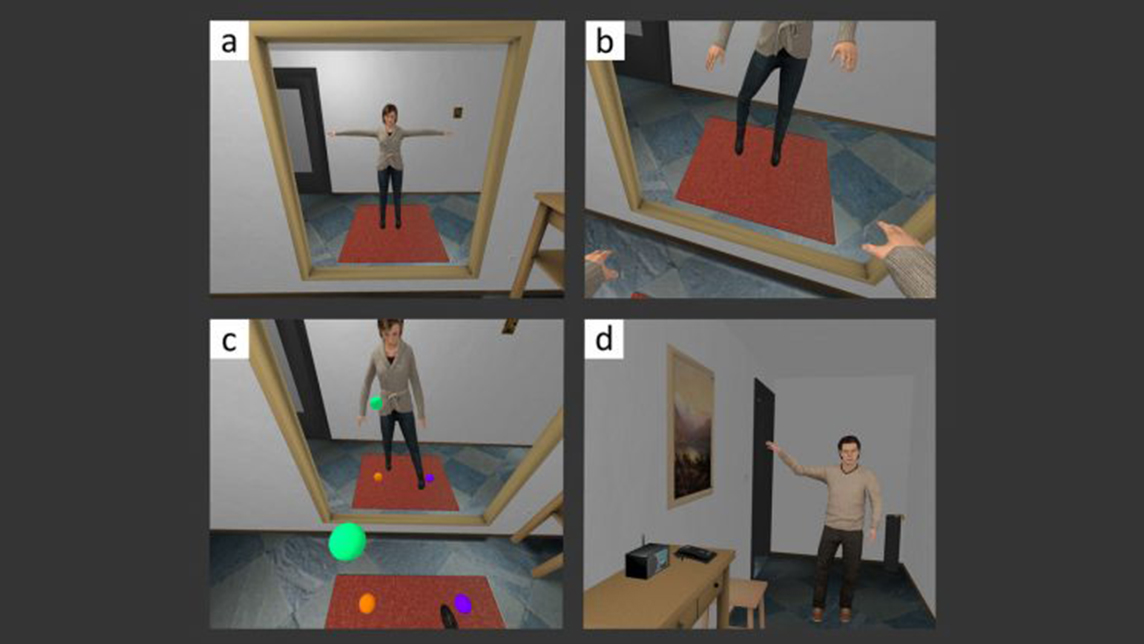Once oft-neglected, mental healthcare became a major focus in the Covid-19 pandemic as the stress and uncertainties of lockdowns, illness, deaths, job losses and more took their toll. As one of the few startups offering online therapy to private individuals and company employees, Madrid-based TherapyChat has seen its business jump ninefold to 250,000 users, from before the pandemic.
Indeed, around a billion people are currently suffering from some kind of mental illness, which is nearly 8 out of every 10 persons on earth, according to the World Health Organization. Mental healthcare is also out of reach for many, even in the developed world, with the cost of a single in-person session commonly exceeding €70 in Europe and at least $75 in the US, and limited state-subsidized treatment available.
Spanish B2B and B2C TherapyChat seeks to make therapy more affordable by taking it online through a dedicated and native platform permitting different functionalities. Founded in 2016 by Italian native and former investment banker and food delivery app senior executive Alessandro de Sario, TherapyChat was among the first such platforms amassing a quarter of a million users to date to become the segment leader in Spain. Today it has some 300 therapists and operations in Spain, the UK, and now Italy.
CompassList caught up with the founder and CEO earlier this month to find out about TherapyChat's background, technological offer and how it is disrupting the talking therapy market.
The following Q&A has been edited for length and clarity.
You have a background in finance and logistics. What inspired you to enter the field of mental health?
I used to travel a lot for work. I often found myself in need of a therapist while on the road, but never found any solution that offered therapy in my native Italian. It was not easy to find the right therapist given my constant travels and the stigma attached to seeking therapy in new places.
Also, there was no technology platform specifically for therapy on the go. Platforms like Skype and Google Meet are not designed for therapy and do not have functions therapists need, like psychological tests and payment processing.
How did you come to start TherapyChat in Spain, and not your native Italy?
I left Italy 10 years ago and began working in Spain as the head of logistics at [Spanish food delivery startup] La Nevera Roja. Although our operations were eventually acquired by Just Eat, I stayed on to oversee the company’s pilot launch here.
One of La Nevera Roja’s investors at the time was Next Chance Group, which has offices and many contacts in Spain. I kept in touch with them, and eventually went on to launch TherapyChat with their backing. They have been our sole investors since day one. We share an office with them and they recently made a €5m Series A investment in us, in addition to their initial investment of €3m.
What was the market opportunity you saw that led you to start TherapyChat?
We are probably Spain’s first online therapy platform. When we first started five years ago, I noticed that digital solutions existed for other fields of healthcare, but therapy and mental health treatment was one of the few verticals left untouched by the Internet.
I saw an opportunity to bring the benefits of an online solution to this sector, starting with flexibility. With us, you can receive therapy wherever you are. The same applies to therapists – they can easily use our platform to provide therapy from their homes.
Another benefit we offer is privacy. With our platform, nobody's going to see you entering or exiting a clinic.
Another major advantage to our platform is personalization. Normally when clients go to a clinic, they might have access to 5–10 therapists, and would need to find the right one for their needs within this limited pool.
Imagine if you lived in a small town with just a few therapists, or if you lived or traveled abroad often! You would have an even smaller pool of therapists to choose from. With us, you get access to hundreds of therapists who speak your native language. Our algorithm also greatly improves your chance of finding the right therapist.
Therapy is expensive. Is it your aim to increase its availability?
Using our system can indeed bring down the cost of therapy. The therapist doesn't need to travel or rent a room that can cost up to €15 per hour, so such costs won’t be passed through to the client.
In-person therapy can easily cost €50–70 here in Spain, whereas our sessions range from €34–44, depending on how many you buy.
How does TherapyChat’s technology work?
Subscribers to TherapyChat speak to a chatbot, developed by us, that gathers as much information as possible before therapy is initiated. Using this information, clients will be matched with a suitable therapist. Our technology also constantly improves this matching of therapist to client by referencing sessions we’ve done for other clients with similar conditions.
This process is not straightforward, because 80% of the time people enter into therapy thinking that they have a certain problem, only for their actual problem to turn out to be completely different.
Using the data we build up and all the information we receive from therapists and clients, we’re constantly working to make our matching algorithm better and smarter. I’m happy to say that we’ve achieved a 97% success rate here, in that less than 3% of clients request reassignment to another therapist.
How long did it take you to develop your technology and platform?
We’re not done building our platform; I think we’re going to be at it for the next 20 years. We see ourselves as a technology company first and foremost and do not outsource development to external vendors.
A key factor differentiating us from other platforms is our focus on user experience. Five years ago, we began with therapy purely through online chat, with no video. Feedback from therapists and patients was not great, because certain techniques used in conventional face-to-face therapy couldn’t be applied.
In 2017, we switched to video therapy. Once we introduced one-hour video sessions, they took off right away. We were able to achieve a net promoter score of 85%, meaning 85% of our users would recommend us to a friend or colleague, which is amazing.
We set out wanting to reinvent therapy by translating it to chat, but we realized we didn’t need to reinvent what works just fine. We just needed to bring therapy online.
We still maintain a chat function, but this is more so that clients could send messages to therapists in between sessions, or notify them of something serious. Therapists also use our technology to send exercises and tests to the client and to manage payments.
Our app is gamified for therapists as well, allowing them to access more resources over time so they, too, are motivated to keep using our platform.
How important are B2B services for you?
TherapyChat was born as a pure B2C play, because to enter the B2B market, you would need scale and have at least 50 therapists. Starting with B2C for the first three years allowed us to build up a good network of therapists. Once we had it, we expanded to B2B.
When corporates approach us, we work out the plan they want to offer employees, and usually integrate our platform into the company intranet. Once that is done, we offer them an unlimited number of sessions. This is in contrast to other providers that limit the number of free sessions clients get.
Has there been more demand for corporates to provide greater mental health assistance to their employees since Covid?
Absolutely. There are studies that suggest that employees working from home are much more stressed. We're being approached by a large corporation every week. In Spain, we already work with a lot of tech companies like Jobandtalent and others like Personio, which has employees all across Europe.
As you see, the market is still very green, from the fact that a German company offers English language therapy to their German employees. Thanks to the English-language service, we can also cover a lot of other countries.
More and more clients are asking for online therapy rather than offline. Especially in a pandemic, people don't want to be shut in a room with someone and they prefer to do therapy from home.
How did you come up with your treatment areas and how are they different from other online therapy platforms?
From day one, I worked with a therapist to build TherapyChat. We became Spain's first online therapy platform in 2018 and are one of the few that signed an agreement with the Official College of Psychologists, the local regulatory body, to govern how therapy should be conducted.
We offer therapy across nine macro areas and 36 specializations. But unlike some online therapy providers, we believe therapy for some of the most severe mental health conditions, such as suicidal tendencies and personality disorders, is best done in person and not online.
Also, we're not like other platforms where an English speaker might receive therapy from someone whose native language is Spanish. We believe therapy should be provided by native speakers, so our Spanish services are provided by Spanish therapists and English ones by British therapists, and so on.
How do you select your therapists?
I think that's the second component of our success after the technology. Our selection process is very strict, we select less than 3% of those who apply. We don't have trainee or student therapists. All our Spanish therapists are registered with the College of Psychologists.
We also check their experience and have at least two other psychologists screen every prospective new therapist, because we could have someone with 20 years' experience but not providing very good therapy. On top of that, we seek clients’ feedback on our therapists.
What are your upcoming expansion plans?
Right now we are launching in Italy, our third market after Spain and the UK. We have a network there and an app that is undergoing testing. We would like to expand to Germany as well. I also see strong potential for us to enter the US, starting with our B2B business working with large international corporates there.













